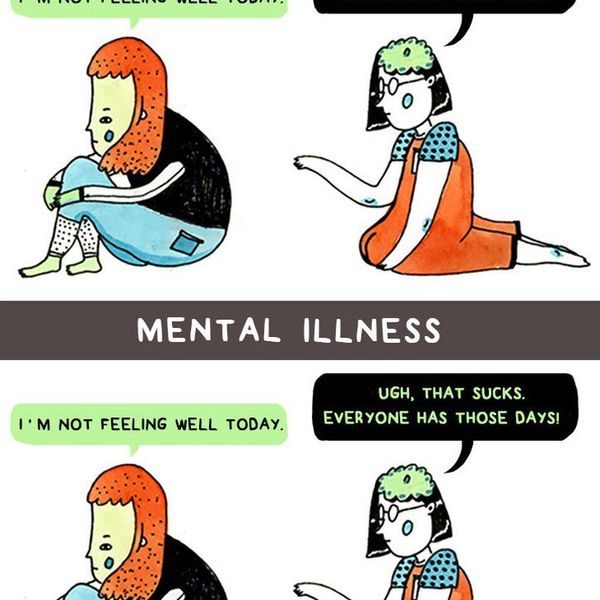Bacteria tends to be a dirty word. Anti-bacterial soaps, hand sanitizers and cleaning products have become the new standard of cleanliness, but not all bacteria is created equal.
Bacteria: Bad vs. Good
Some bacteria is bad.
Bacterial infections are conventionally treated with antibiotics, and if you’ve used prescription antibiotics before, it’s possible your doctor who wrote the script also advised that you consume yogurt alongside the medication.
Some bacteria is good.
Yogurt (that hasn’t been overly heated and treated) contains probiotics – beneficial bacteria our guts need that are killed off by antibiotic use. While the purpose is not to kill off our helpful bacteria, antibiotics are a double-edged sword, indiscriminately killing both the good and bad bacteria alike. After a round of antibiotic use, our bodies need help to replenish the supply of good bacteria in our guts – hence your doctor’s yogurt suggestion.
But probiotics are not only for those taking antibiotics; probiotics can improve anyone’s health. Better gut health means better health overall since 80 percent of the body’s immune system is located in the digestive tract.
The Science of Probiotics
But how exactly do probiotics work? Why are these bacteria beneficial?
Probiotics line the digestive tract. Their primary job is aiding the body in nutrient absorption and warding off infection. Trillions of these bacteria exist in the average person and have been established since the moment of birth. When babies leave the birth canal, they collect good bacteria from their mother that begins to populate their gastrointestinal tract. The more of these bacteria that exist, the less room there is for bad bacteria to flourish. Thus, a more powerful immune system thrives.
It Takes Guts
Not only does gut health affect our overall immunity, but our gut actually has a strong connection to our brain, as well. Our gut is the second largest part of our neurological system, thus affecting our mental health, too. Good bacteria contribute to the majority of your body’s serotonin, without which it becomes easier for depression to set in.
Perhaps more obvious than poor immunity and mental health are the digestive issues poor gut health can create. Without probiotics, yeast can overgrow in the gut. This can cause bloating, constipation or diarrhea along with a host of other adverse reactions. Diarrhea, bloating and constipation are not exclusive to yeast overgrowth, however. These symptoms can indicate a number of digestive issues, including more serious autoimmune diseases such as ulcerative colitis or Crohn’s disease.
Although many doctors agree that there have not been enough conclusive studies on the effectiveness of probiotics in these patients, many with digestive diseases such as these claim to experience some relief with probiotic use, as well.
Not All Probiotics Were Created Equal
It’s safe to say that the word is getting out about probiotics and the massive impact our gut health has on our entire bodies. A 2015 ConsumerLab.com Survey of Vitamin and Supplement Users polled more than 10,000 people and reported just over 40 percent used probiotic supplements. But much like not all bacteria is bad, not all probiotics are good for everyone, due to bio-individuality.
Some people are sensitive or allergic to dairy, and therefore should avoid dairy-based probiotic supplements or probiotic-rich dairy foods such as yogurt, milk kefir or raw cheese. Fortunately, there are plenty of other whole food sources that contain probiotics besides yogurt. Other non-dairy sources include fermented foods such as kombucha, coconut kefir, sauerkraut, kimchi, miso, natto and kvass. Just as incorporating sunshine into your day is better than taking a vitamin D supplement, incorporating fermented foods into your diet is one of the easiest and cheapest ways to get your daily dose of probiotics.
However, for those with an aversion to fermented foods or a preference for taking a pill or incorporating a powder into daily drinks, a supplement may be an easier fit.
Aside from whether or not your supplement contains dairy, other things to pay close attention to in a supplement are the exact names of the cultures used to make the supplement. The probiotic strain Lactobacillus acidophilus can die off quickly in our guts because it cannot always withstand stomach acid or bile. Instead, look for labels that list Lactobacillus acidophilus DDS-1 – this strain lives far longer in the gut and is more likely to help your body reap the benefits of probiotic use.
A good supplement will contain a wide variety of strains, though. Different strains serve different functions in the gut. Lactobacillus helps your upper GI tract, while Bifidobacterium lives in the lower intestine.
Another detail to take note is how many colony forming units (CFUs) the supplement contains – you’ll want one with at least 50 billion, which is how many you receive per dose.
Finally, you want a probiotic that does not contain genetically modified organism ingredients (GMOs). GMOs can counteract the effectiveness of probiotics, but they’re not the only probiotic opponent.
The Probiotic Enemies
The biggest and most obvious threat to probiotics are antibiotics. However, more unsuspecting sources can be to blame for killing off healthy bacteria and feeding the bad bacteria. Sugar is a huge culprit. It is important to eliminate or seriously cut back on sugar as well as grain intake to help keep gut flora balanced – probiotics are not a cure-all for a poor diet.
Surprisingly, tap water is also a probiotic enemy. Chlorine and fluoride in the water kill off the healthy bacteria. Chemically-laden foods and medications can also do this.
Finally, just like our guts affect our brains, our brains affect our guts, too. Emotional stress can fight good bacteria and cause poor digestive health, as well.
It is after introducing more probiotics in our diets and eliminating their opponents, however, that we begin to see some of the mental, emotional and physical benefits probiotics have to offer.
The Benefits
Aside from boosting immunity and helping digestion, probiotics have been shown to prevent and treat urinary tract infections, manage eczema in children and fight food-borne illness.
Currently being studied is the effectiveness of probiotics in the management of autism, treatment of kidney stones, battling of cancer, treating liver disease, improving acne and losing weight.
With all the benefits and potential probiotics can bring, it’s important to keep in mind that too much of a good thing can exist. Consuming too many probiotics at once is possible and can sometimes cause diarrhea, gas and bloating. These symptoms can occur from “die-off” of the bad bacteria, so proceeding slowly and with caution when introducing probiotics to your daily regimen is key.
Over time, your body will thank you.





















